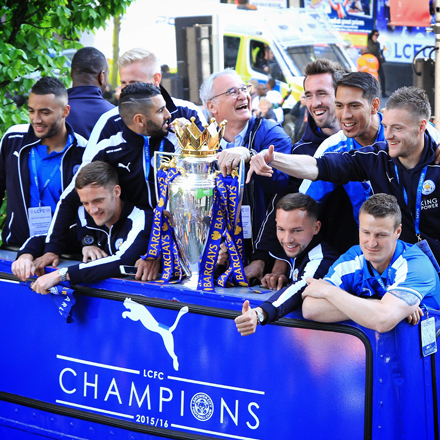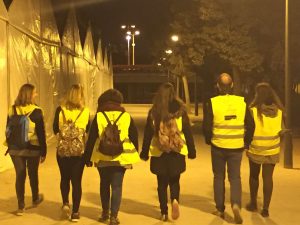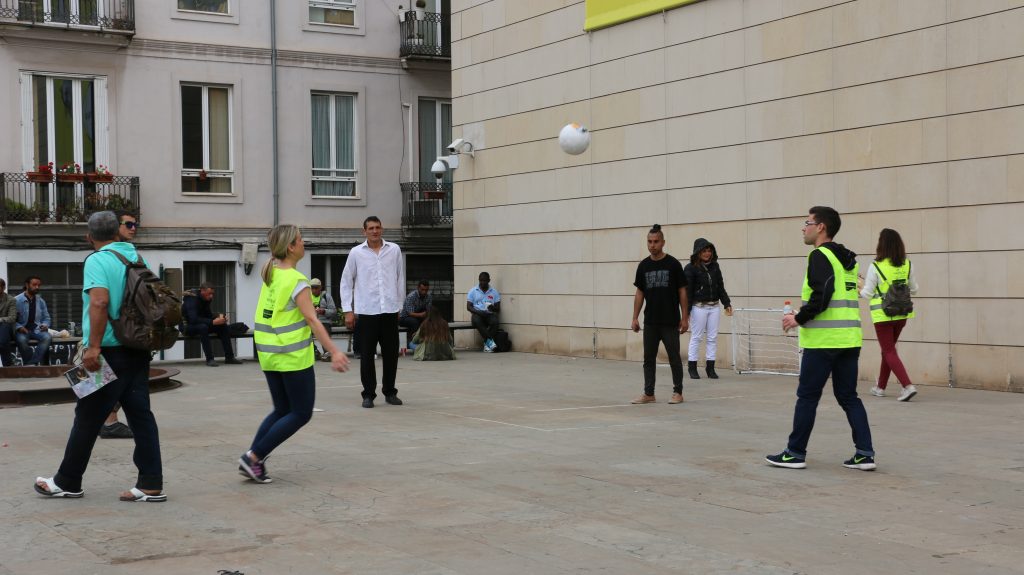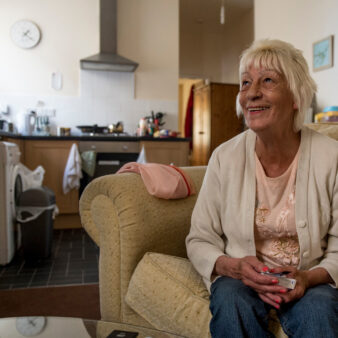
When I got married in June last year, my husband raised a toast to ‘the best year of his life’. He then finished his sentence with ‘2016 was the best year of my life because Leicester City Football Club won the Premier League’. So Leicester City Football Club really is the love of his life. But this moment for me really reinforced how football breaks the ice, builds relationships and creates unity.
There have been a few events I’ve been involved with over the past two years which have made me realise how football is at the heart of so many relationships. Football brings people together. Whatever language you speak and whatever team you support. Even if you’re not a ‘fan of football’ there seems to be an unwritten rule that most people know something about it.
Whilst I was in Valencia in April last year, I took part in a ‘Connections Week’, part of the European End Street Homelessness Campaign. Over three nights I joined hundreds of volunteers made up of local people and RAIS Fundación reaching out to those sleeping rough on the streets of Valencia.
 My team included a local nurse, a student and a teacher. We spoke to rough sleepers about their experiences and I met several people without a place they were able to call home. Some were 26 years old, my younger brother’s age, and some were similar ages to my parents. They were sleeping rough because they’d lost their jobs, had an illness or were getting away from serious problems happening at home.
My team included a local nurse, a student and a teacher. We spoke to rough sleepers about their experiences and I met several people without a place they were able to call home. Some were 26 years old, my younger brother’s age, and some were similar ages to my parents. They were sleeping rough because they’d lost their jobs, had an illness or were getting away from serious problems happening at home.
I can only speak English but my Spanish team leader could speak English too. To break the ice he asked me where I was from. I replied Leicester. He replied instantly, ‘home to the soon-to-be champions of England’. Amazingly, Leicester City Football Club had managed to remove any cultural barriers and we now had something in common. It felt like after this moment he took me under his wing. He knew a lot more about the city I was from due to the worldwide media coverage Leicester had then been receiving.
It was early evening and dusk was setting. The streets of Valencia were quietening down as people went home after a day of work. We spotted and visited a group of homeless men in a small park. The men, sleeping rough, could speak several languages and some of them told me they had university degrees. Some had families they hadn’t seen for years. We asked them if we could speak to them about their experiences and why they were homeless. They agreed but said they had to be quick because there was a football match being shown on an outdoor TV screen and they’d been looking forward to it all week. Straight away we all had something in common – football.
 Later that week I met a young footballer who was living on the streets. He loved football, was very talented and had played for a local team. He had friends who he went to see in their homes where he could watch televised games.
Later that week I met a young footballer who was living on the streets. He loved football, was very talented and had played for a local team. He had friends who he went to see in their homes where he could watch televised games.
What struck me about all these instances was the fact that football gives people something to believe in and something to talk about. Something to be passionate about and provide a ray of hope. It’s escapism.
More recently I’ve been to Amsterdam to the International Social Housing Festival organised by Housing Europe.
I heard from Stångåstaden, the largest housing company in Linköping, Sweden. They talked about how sport has brought communities together. Young people aged between 14 and 17 who had been walking around the streets at night had been encouraged by Stångåstaden to join night football. Every Saturday between 9pm and 1am, a local group of young men opened the gym hall for a free game of night football. They arranged random teams and then let everybody play against each other. Statistics from the police show that the crime rate in the area sank by 48% during these matches.
After one year the youths decided to create a new football club, playing during the day. This is now up and running and over 50 children take part every week. Some of the football coaches who were unemployed have gone on to get permanent jobs through the scheme.
Stångåstaden also help with parents’ costs towards driving to and from game days, washing game clothes, etc. Parents watch their children at the matches and have got to know each other a lot more, building stronger communities and relationships.
 I used to moan a lot about my husband being fanatical about football. But seeing it through the eyes of different people I now realise how important football really is.
I used to moan a lot about my husband being fanatical about football. But seeing it through the eyes of different people I now realise how important football really is.
And if Leicester City Football Club can win the world’s most watched league, what’s stopping us all from achieving our ultimate goals? And what can we learn from football about the way it unites and excites people?
*Image credit – top image: Ed Melia – Leicester City victory parade




Join the discussion